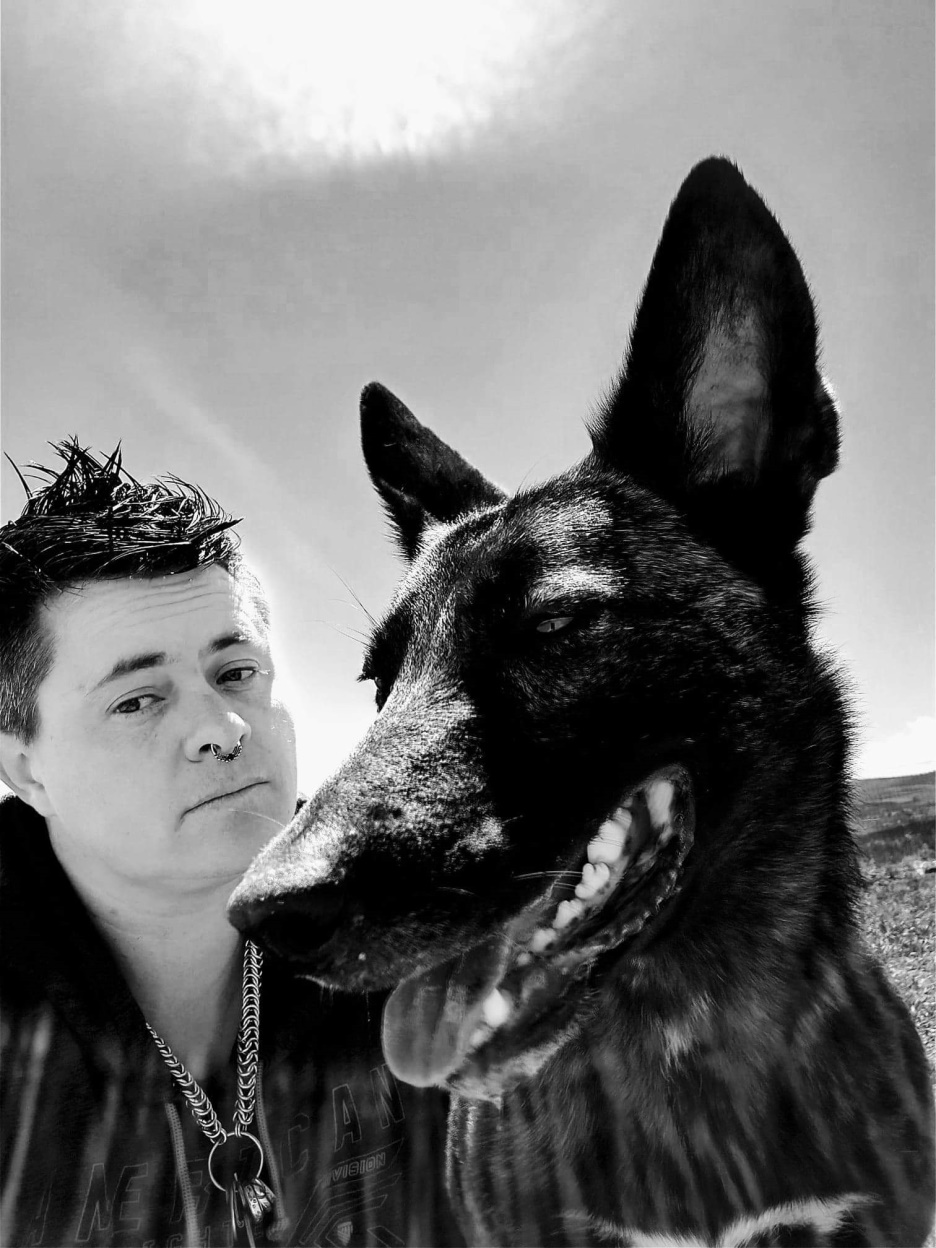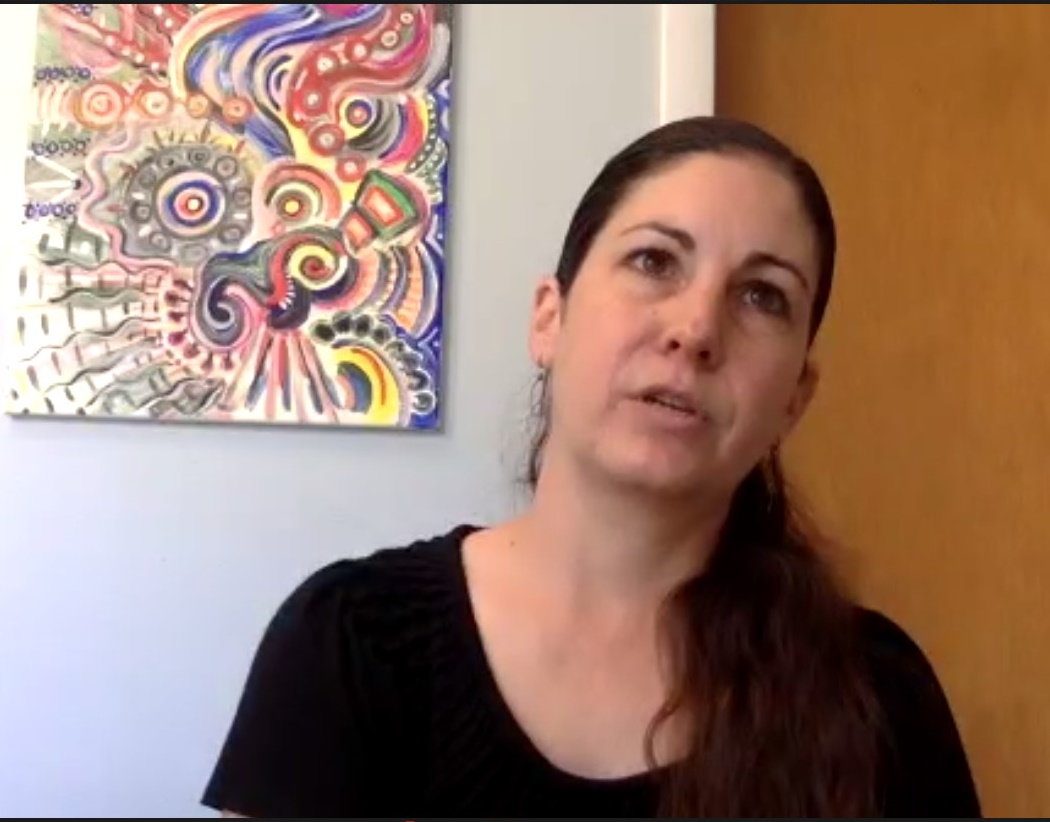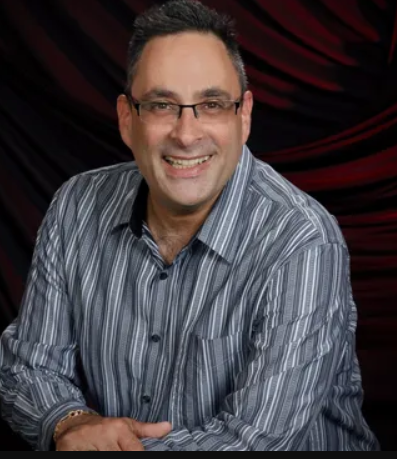Mental Health Panel: Promoting Well-Being for Individuals with Brain Injuries
By Eliza Marie Somers
Recovering from a traumatic brain injury not only takes a physical toll on your body, it also can have damaging effects on your mental health, including a loss of identity to loss of relationships. However, there are mental health professionals who specialize in TBI recovery with strategies to help you on your recovery journey.
Crisis Hotline
- The State of Colorado has a 24/7 hotline you can call or text for FREE Services. https://coloradocrisisservices.org/
- 844-493-8255 or text “TALK” to 38255
Translation services available in more than 200 languages - Walk-in centers are available. Find a location here: https://coloradocrisisservices.org/#map
- National Suicide Prevention Lifeline 800-273-8255.
Starting July 16, 2022, the number becomes 988, a three-digit national line.
“Having a brain injury doesn’t define who you are,” said Gregg Grossman, a Biblical Life Coach and a TBI survivor, during the May 13, 2022, Brain Injury Hope Foundation’s Survivor Series – Mental Health Panel: Promoting Well-Being for Individuals with Brain Injuries. “I help you work through the challenges. We work on a recovery plan along with your interests and explore that which is you and what’s in your heart.”
“We help you get from surviving to thriving,” said panelist Susan Brown, a TBI survivor and a mental health counselor at the Brain Injury Alliance of Colorado. “And the way to work on that is – who you are as a person. Who you are in your heart — your values, your character. If you were a loving empathic person before the brain injury, you still are that same person.”
How to Contact Our Mental Health Panelists
- Gregg Grossman, Ph.D., Biblical Life Coach https://beyondperseverance.com/
- Lucia Valdez, MSW, CBIS, Brain Injury Alliance of Colorado, Program Manager Lucia@BIAColorado.org
- Susan Brown, LPC, MA, CBIS, Brain Injury Alliance of Colorado, Mental Health Counselor Susan@BIAColorado.org
- Jess Tiergyn, LPC, MCC 970-509-5821 or 970-682-4558 jesshaynes@calibercounseling.com https://www.calibercounseling.com/
Panelist Jess Tiergyn is also a TBI survivor and a former first responder, who knows all too well the trials brain injury survivors face in their recovery.
“Basically, I broke my body and broke my mind,” said Tiergyn, who earned her master’s degree in mental health after the injury. “It’s a journey that I can walk with people, especially first responders. I walked that path myself, and how the world changed and is no longer available to you anymore. I help people find the path that best works for them. If one path doesn’t work let’s work on finding another.”
Trying Different Therapies
Some of the therapies Tiergyn uses in her practice include eye-movement desensitization and reprocessing (EMDR), cognitive behavioral therapy (CBT), dialectical behavioral therapy, somatic therapy and mindfulness.
Brown, who is an art therapist, incorporates a holistic approach in her practice encouraging mindfulness, meditation, tai chi, yoga, acupuncture, chiropractic care.
“Be curious, explore what feels right for you now. What are you drawn to?” Brown said, also stressing to follow through on recommendations because it might take three months to feel better. “It’s really about you and your journey, and finding what works for you. Try different things; something that didn’t work two years from injury, might work for you five years out. Go with the flow with what you are learning about yourself.”
One easy way to help regulate emotions, especially anger is to eat a piece of fruit, Brown said. “Fruit can immediately change your nervous system.”
For more on foods effects on the brain.
- https://www.ncbi.nlm.nih.gov/pmc/articles/PMC3258094/
- https://www.childrenscolorado.org/conditions-and-advice/parenting/parenting-articles/calming-foods/
- https://www.youtube.com/watch?v=xyQY8a-ng6g
- https://www.amenclinics.com/blog/5-common-nutritional-deficiencies-in-mental-health-problems/
Finding therapies that will work for you along with a therapist you can trust can be difficult, but it’s important to scrutinize the person who will be working with you.
“It’s important to be educated about your therapy,” Valdez said. “I’m a big advocate for a neuropsych exam to find out your challenges and your strengths. Am I going crazy? Or is this normal? The educational component can help survivors understand strengths and find help in areas that are a challenge. And what impacts mental health, which can lead to depression and anxiety.”
- Neuropsychological tests evaluate functioning in a number of areas including: intelligence, executive functions (such as planning, abstraction, conceptualization), attention, memory, language, perception, sensorimotor functions, motivation, mood state and emotion, quality of life and personality styles.
- Psychology Today Find A Therapist website: https://www.psychologytoday.com/us/therapists
Valdez encouraged survivors not to be shy about choosing a mental health therapist.
“You have to remember you are interviewing the therapist. You have 100 percent empowerment,” she said. “Ask about their education. What treatment modalities do they use? And it’s important they have experience with brain injury survivors. Are they comfortable working with the brain injury community? Trust your gut. If you are not comfortable, please shop around. I really appreciate it when clients ask questions.”
Tiergyn suggested asking for a free consultation or schedule three sessions to “feel the space, feel the energy,” and to wait 24 hours afterward to feel what your gut tells you.
“Does it feel positive? Does it have potential? If there is a deep discomfort, move on,” Tiergyn said. “If it’s not a good fit, it’s OK to move on. A therapist doesn’t get to own you. … You know what’s best for you.”
Some of the common mental health issues health professionals see with TBI survivors include, PTSD, general anxiety and depression.
“There’s this loss of identity and the recovery of self,” Brown said. “There is grief in the sense of that loss. And it’s an ambiguous loss. There’s an overall sense of a loss of purpose and meaning. We help you get from surviving to thriving.”
For more on grief and TBI
Tiergyn agreed grief is a real issue that TBI survivors and their families have to deal with in order to heal.
“Grief is a piece that really stands out. It’s strong even if it was not overly traumatic event, but the loss is traumatic,” they said. “Not to be able to show up in life as you did before the brain injury. … A brain injury takes a lot from us a lot, and people feel disempowerment. We help you find ways of giving power back to yourself.”
“Grief is real, and the real healing comes from within, from the heart,” Grossman said. “You might be cognitively impaired, and you need to embrace that, and so does your family members. … Even though a TBI survivor might be cognitively impaired, the soul and spirit are still connected to God.”
During his recovery from a brain injury, Grossman said he “fed upon prayer” by reading Scriptures and meditating on them.
“I relate prayer to a defroster in a car. Turn the defroster on my heart, and all the ice and fear melted away. I was able to see and work through the difficult situations. And you can do it anywhere and any place. God meets you where you are at. God hears you,” Grossman explained.
Some people may recoil when prayer is mentioned as a means to help with mental health concerns, but there has been more and more research on the effects of prayer and the brain. Listed below are a few of the studies.
- A 2005 study in the Journal of Behavioral Medicine comparing secular and spiritual forms of meditation found spiritual meditation to be more calming. In secular meditation, you focus on something such as your breath or a nonspiritual word. In spiritual meditation, you focus on a spiritual word or text. Participants were divided into groups, with some being taught how to meditate using words of self-affirmation (“I am love”) and others taught how to meditate with words that described a higher power (“God is love”). They then meditated for 20 minutes a day for four weeks. Researchers found that the group that practiced spiritual meditation showed greater decreases in anxiety and stress and more positive mood. They also tolerated pain almost twice as long when asked to put their hand in an ice water bath.
- Another study on Prayer and Mental Health
- Psychology Today story on Prayer and Mental Health as well as the role of a clinician
- Brain Chemical Production and Prayer Research
Suicide and Brain Injuries
Suicidal thoughts are difficult to deal with, and there are strategies a TBI survivor and their families can take to help people get through their darkest hours.
“Risk impulsivity is higher in TBI survivors,” Tiergyn said. “We can draw out the impulse when someone is in a real dark and heavy place. It may seem easier to reach for something that’s harmful when they are in the moment. You have to have the tools you can reach for when the brain doesn’t want to wait. Call a friend, a spiritual leader, connect with a pet or nature to bypass that time.
“Suicidal ideation is normal. It’s like bleeding. It’s normal, but it’s not healthy. Suicidal thoughts are normal to a really bad situation, and recognize that something needs to change,” Tiergyn explained. “We can look at that and why they hurting. It’s a normal response to deep, deep pain as a survivor. We help a survivor figure out what resources they need.”
Valdez said education is important not only for the survivor, but also for the family.
“It’s important to realize the onus is not just on the survivor,” she said. “We need to educate those around the survivor. Suicide education is valuable so you can recognize it and how to talk about it.”
One strategy for TBI survivors and their families is putting the emergency services hotline number in their phones. Veterans should keep their VA hospital number in their phones.
“The crisis line is so important. Reach out, they are there for you. It’s important to reach a mental health professional,” Grossman said. “You are not alone. Also get in support groups. You can Google support groups.”
Barriers to Recovery
It takes work to recover from a brain injury and at times obstacles will block the healing path, but knowing the barriers can help TBI survivors reach their goals.
“Consistency is important,” Brown said. “Things do come up, but stay in touch with your therapist (if you miss appointments). Help them understand where you are. Ask for accommodations, like reminders of appointments.”
Valdez explained that some people think there’s a quick fix solution to recovery.
“Some people go in and say ‘All right fix me now. Sprinkle me with your magic,” Valdez said. “Therapy is work. You have to be ready for the work and having ownership. We can’t pull magic out of a hat. You want everything to go back to normal, we help make things manageable for you. No one is happy all the time, and no one should be sad all the time.”
And know that some barriers are out of your control.
“There’s lots of barriers that you and we don’t have control over,” Tiergyn explained. “Like it’s hard to find a therapist or to have a neuropsych test. It can be a year out for an appointment. Understand the system is broken. There are access issues, and it is hard.”
“Do things you have control over. Things don’t have to control you,” Grossman suggested.
“Being present in the moment with something that makes you feel good,” Brown said. “Find ways to overcome barriers. If there is a barrier, there are different ways to accomplish something.”
“(Healing) takes time. It’s a process,” Tiergyn said. “Find something that is healthy today, and it can be something as simple as sitting in the grass or reaching out to someone you connect with. Take 10 minutes to eat a piece of chocolate. How does it smell? How does it taste on the tongue? How does it feel in the mouth? Actually, be with it for a moment. And in that moment, you get to experience pleasure. Big goals are important, but they take time. Have smaller goals, too.”
And realize that each day is different.
“Some days you feel great, others days it’s like where are my keys?” Tiergyn explained that recognizing the diversity from day to day is helpful. “Some days are real hard. … but by knowing your strengths, you can reach for other tools when others are inaccessible.”
Love and Trauma
“Trauma blocks love, and love heals trauma.”
Author and doctor Frank Anderson explains his favorite quote from his new book:
I believe this to be true and have personally experienced it. Trauma activates an internal cascade of reactions that blocks love, connection and creativity; and in turn, love has the power to transcend our trauma, heal our pain, and reconnect us to our self, our source, and each other.
For more on Dr. Frank Anderson




